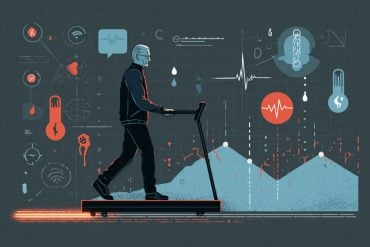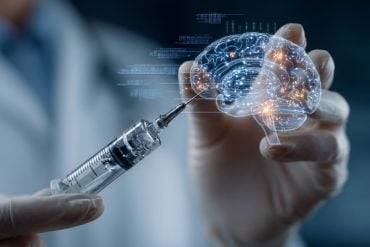Study in young patients confirms value of short-term use; results on long-term use forthcoming.
A multicenter study of young patients with bipolar disorder provides what may be the most scientifically rigorous demonstration to date that lithium — a drug used successfully for decades to treat adults with the condition — can also be safe and effective for children suffering from it.
The study, led by a researcher at the Johns Hopkins Children’s Center and published Oct. 12 in Pediatrics, affirms what clinicians who prescribe this drug have observed for years and suggests that doctors can now more confidently add lithium to the armamentarium of available treatments for this vulnerable population — at least in the short term, the authors say.
Lithium is one of the oldest drugs for bipolar disorder, a chronic brain condition marked by spontaneous, seesawing bouts of abnormally high moods and depression. The drug’s ability to stabilize mood extremes has been well-established in adults. However, researchers say, although it can also be prescribed for children and teenagers, it has previously not been seriously tested in young people for safety and effectiveness.
Historically, they point out, children and women of childbearing age have generally been excluded from many clinical drug trials out of an abundance of caution and ethical concerns. But in recent years, research guidelines have reflected the belief that excluding such populations may in fact be harming them, because drugs are either withheld or found to behave differently than they do in other groups.
“Lithium is the grandfather of all treatments for bipolar disorder, but it has never been rigorously studied in children,” says Robert Findling, M.D., M.B.A., a professor of psychiatry and behavioral sciences at the Johns Hopkins University School of Medicine and director of child and adolescent psychiatry at the Johns Hopkins Children’s Center. Findling initiated the work while director of child and adolescent psychiatry at Case Western Reserve University School of Medicine.
Though medications used to treat schizophrenia and other psychoses are prescribed to treat bipolar disorder in children, Findling says, those drugs have been linked to substantial weight gain, a considerable medical and social drawback for young people that causes many to stop taking them.
To test whether lithium is safe and as effective at treating bipolar disorder for children as it is for adults, Findling and his colleagues performed a randomized, placebo-controlled prospective study — the gold standard for clinical research — involving 81 patients seen at nine academic medical centers across the United States. The participants, split roughly equally between sexes, ranged in age from 7 to 17 and had all been diagnosed with bipolar disorder.
After undergoing a “washout” period for those already taking ineffective medication for this condition, 53 children started a regimen of lithium at a standard dose, then gradually increased to a maximum tolerated dose over the next eight weeks if mood symptoms weren’t controlled. The remaining 28 patients received placebo.
At weekly visits for the first four weeks, and then every other week for the remainder of the study period, patients’ symptoms were assessed using a survey called the Young Mania Rating Scale, along with other standard assessment tools for bipolar disorder symptoms and therapies. Patients were also questioned about side effects and given a physical exam, including a weight check.
Results showed that the patients on lithium experienced far more significant improvement in their symptoms over eight weeks compared with those on the placebo. Some 47 percent of those on lithium scored in the range of “very much improved” or “much improved” on the Clinical Global Impressions Scale, a rating system commonly used to assess the efficacy of treatments in patients with mental disorders, compared to 21 percent of those on the placebo.

Additionally, those on lithium dropped nearly six more points on average in the 60-point YMRS. Unlike antipsychotic agents, such as risperidone or olanzapine, lithium treatment was not associated with significant weight gain, and none of the patients experienced serious side effects due to the lithium treatment.
Findling says the findings provide a scientific and reliable confirmation of lithium’s efficacy and safety for children in the short term, offering evidence that doctors can use when deciding what medication to prescribe their pediatric patients with bipolar disorder. Further analyses are currently in progress to examine the long-term implications of lithium use, he adds. Areas of particular focus include evaluation of any potential side effects, such as weight gain, reduced kidney function or diminished thyroid function — all important considerations, as those with bipolar disorder may need a lifetime of medication and behavioral therapies.
Bipolar disorder affects approximately 1 percent of teens and is one of the leading causes of disability in adolescence. The disorder usually begins during adolescence or young adulthood. Bipolar disorder that starts prior to adulthood usually portends worse outcomes.
Funding: The research was funded by the Eunice Kennedy Shriver National Institute of Child Health and Human Development, “Best Pharmaceuticals for Children Act Pediatric Off-Patent Drug Study: Lithium in the Treatment of Pediatric Mania” under contract HHSN275200503406C.
Source: Taylor Graham – Johns Hopkins Medicine
Image Source: The image is in the public domain
Original Research: Abstract for “Lithium in the Acute Treatment of Bipolar I Disorder: A Double-Blind, Placebo-Controlled Study” by Robert L. Findling, Adelaide Robb, Nora K. McNamara, Mani N. Pavuluri, Vivian Kafantaris, Russell Scheffer, Jean A. Frazier, Moira Rynn, Melissa DelBello, Robert A. Kowatch, Brieana M. Rowles, Jacqui Lingler, Karen Martz, Ravinder Anand, Traci E. Clemons, and Perdita Taylor-Zapata in Pediatrics. Published online October 12 2015 doi:10.1542/peds.2015-0743
Abstract
Lithium in the Acute Treatment of Bipolar I Disorder: A Double-Blind, Placebo-Controlled Study
BACKGROUND: Lithium is a benchmark treatment for bipolar disorder in adults. Definitive studies of lithium in pediatric bipolar I disorder (BP-I) are lacking.
METHODS: This multicenter, randomized, double-blind, placebo-controlled study of pediatric participants (ages 7–17 years) with BP-I/manic or mixed episodes compared lithium (n = 53) versus placebo (n = 28) for up to 8 weeks. The a priori primary efficacy measure was change from baseline to the end of study (week 8/ET) in the Young Mania Rating Scale (YMRS) score, based on last-observation-carried-forward analysis.
RESULTS: The change in YMRS score was significantly larger in lithium-treated participants (5.51 [95% confidence interval: 0.51 to 10.50]) after adjustment for baseline YMRS score, age group, weight group, gender, and study site (P = .03). Overall Clinical Global Impression–Improvement scores favored lithium (n = 25; 47% very much/much improved) compared with placebo (n = 6; 21% very much/much improved) at week 8/ET (P = .03). A statistically significant increase in thyrotropin concentration was seen with lithium (3.0 ± 3.1 mIU/L) compared with placebo (–0.1 ± 0.9 mIU/L; P < .001). There was no statistically significant between-group difference with respect to weight gain.
CONCLUSIONS: Lithium was superior to placebo in reducing manic symptoms in pediatric patients treated for BP-I in this clinical trial. Lithium was generally well tolerated in this patient population and was not associated with weight gain, distinguishing it from other agents commonly used to treat youth with bipolar disorder.
“Lithium in the Acute Treatment of Bipolar I Disorder: A Double-Blind, Placebo-Controlled Study” by Robert L. Findling, Adelaide Robb, Nora K. McNamara, Mani N. Pavuluri, Vivian Kafantaris, Russell Scheffer, Jean A. Frazier, Moira Rynn, Melissa DelBello, Robert A. Kowatch, Brieana M. Rowles, Jacqui Lingler, Karen Martz, Ravinder Anand, Traci E. Clemons, and Perdita Taylor-Zapata in Pediatrics. Published online October 12 2015 doi:10.1542/peds.2015-0743






